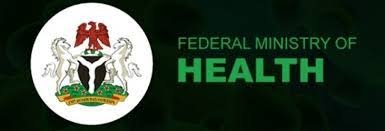The Federal Ministry of Health and Social Welfare has debunked claims made by a popular religious leader discouraging Nigerians from reducing their salt intake, warning that such misinformation could worsen the nation’s rising burden of preventable diseases.
In a statement released Wednesday by Deputy Director of Information and Public Relations, Alaba Balogun, the Ministry clarified that salt itself is not harmful when consumed in moderation, but excessive consumption is driving high rates of life-threatening illnesses across the country.
“Salt is not the enemy. Salt contains sodium, an essential mineral that supports vital body functions such as nerve activity, muscle movement, and fluid balance,” Balogun explained. “However, the concern lies in excessive consumption, not in salt itself.”
The Ministry emphasized that Nigeria aligns with World Health Organization (WHO) recommendations, which limit daily salt intake to 5 grams—roughly one teaspoon. However, research indicates that most Nigerians consume more than twice that amount.
“This excessive intake is a major contributor to high blood pressure, stroke, heart failure, and kidney disease—non-communicable conditions that continue to claim thousands of lives annually,” the statement warned.
The rebuttal comes amid the circulation of a widely shared video in which a respected cleric urged Nigerians to ignore medical advice on limiting salt. While the Ministry refrained from naming the religious leader, it stressed the danger of mixing unverified health claims with spiritual guidance.
“We deeply respect the important role of faith and religious leaders in our society,” Balogun stated. “But we wish to state clearly: Doctors do not lie. Nigeria’s health professionals are trained to offer evidence-based guidance rooted in decades of scientific research and patient care.”
To address the growing crisis, the Ministry said it is implementing a national sodium reduction strategy, including new guidelines that mandate sodium reductions across packaged foods, home-cooked meals, and street-vended dishes. The initiative also targets food manufacturers and regulators to collaborate in lowering sodium content without compromising food quality.
Additionally, the Ministry clarified misconceptions about sodium in medications:
“The presence of regulated sodium compounds in certain medications is not equivalent to dietary salt (sodium chloride) and is safe when prescribed appropriately.”
Reaffirming its commitment to both science and community engagement, the Ministry called for cooperation between health experts and faith leaders.
“Faith and science are not at odds—they can and should work together for the well-being of our people,” the statement concluded.
The Ministry urged the public to seek health advice from qualified professionals and join efforts to reduce the impact of preventable diseases driven by poor nutrition choices.



